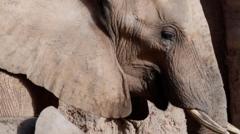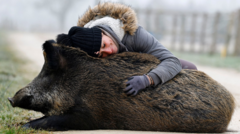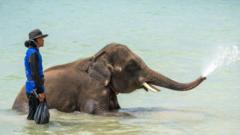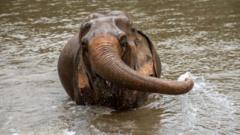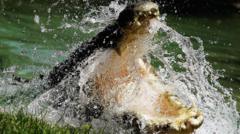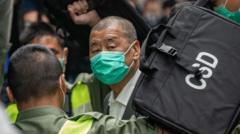A twelfth monkey has died at the Hong Kong Zoological and Botanical Gardens, reportedly from a bacterial infection connected to contaminated soil, following the recent death of eleven others. Authorities assure that the risk of transmission to humans remains low, yet animal rights advocates call for a reevaluation of animal captivity.
Outbreak Claims Twelfth Monkey in Hong Kong Zoo as Investigations Unfold
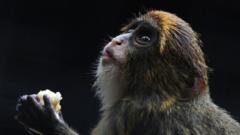
Outbreak Claims Twelfth Monkey in Hong Kong Zoo as Investigations Unfold
Bacterial infection outbreak continues to raise concerns following the death of a De Brazza's monkey, bringing total fatalities to twelve amid an ongoing investigation.
A twelfth De Brazza's monkey has succumbed at the Hong Kong Zoological and Botanical Gardens, as authorities investigate a bacterial infection that has led to the death of 11 other monkeys over the past week. This latest fatality occurred shortly after the first incidents were reported on October 13, prompting the immediate isolation of affected animals.
Preliminary autopsies suggested a concerning presence of sepsis-inducing bacteria believed to have originated from contaminated soil near the primates' enclosures. The Hong Kong government's Culture, Sports and Tourism Secretary informed media outlets that construction workers may have inadvertently introduced this contamination via their footwear while digging near the regions housing the primates.
Veterinary epidemiologist Dirk Pfeiffer from the City University of Hong Kong provided insight, indicating that the likelihood of the infection transmitting to humans is "fairly low." However, he expressed concern that sudden multiple deaths in captive animal populations, such as this case, should never be taken lightly.
Among the deceased prior to the twelfth monkey was a range of species, including critically endangered cotton-top tamarins and various monkey types, all showing symptoms consistent with melioidosis, a disease caused by the Burkholderia pseudomallei bacterium endemic to tropical and subtropical climates. The recent death on Tuesday confirmed similar internal lesions observed in the preceding monkeys.
Despite these events, officials stated the remaining 78 mammals in the zoo possess normal health. Nonetheless, the mammals section has been closed since October 14 to facilitate thorough cleaning and disinfection measures. The Hong Kong Zoological and Botanical Gardens, established over a century ago, operates in the heart of the city, spanning 14 acres.
As discussions about animal welfare continue, animal rights organization PETA voiced its apprehension regarding potential zoonotic diseases, including monkeypox, highlighting the need for reevaluating animal captivity practices. PETA campaign manager Abigail Forsyth stressed that the well-being of animals would be best served by preserving their natural ecosystems rather than keeping them caged for entertainment purposes.
Historically, melioidosis has been a recurring concern in Hong Kong, with its earliest notable outbreak identified in the mid-1970s when 24 dolphins died from the same disease at Ocean Park, a local theme park.

